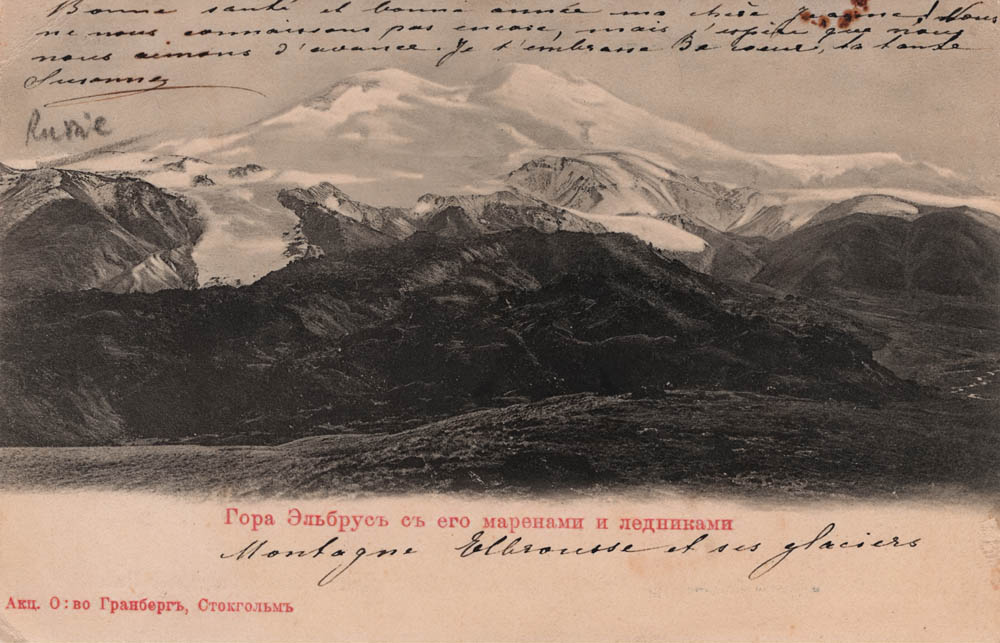The etymology of the well-known name of the highest peak in Europe is unknown; Elbrus has been widely known beyond the Caucasus since ancient times. The origins of the names given by the indigenous peoples of the region are more explicable. The Karachay-Balkar name Mingi-Tau means “eternal mountain.” The Kabardian name Oshkhamakho translates to “mountain of happiness.” Among other Turkic-speaking peoples, Elbrus was called Jin-Padishah, meaning “ruler of spirits.” The Abkhaz name Orfi-tub translates to “mountain of the blessed,” and the Georgian name იალბუზი (Ialbuz) means “mane of snow.”
According to Greek mythology, Prometheus was chained to Elbrus; this connection likely arose due to the volcanic origin of the mountain (the last eruption occurred around 50 AD, and the volcano is currently dormant). Circassian Kilar Khashirov, a guide for a Russian scientific expedition, conquered the eastern summit of Elbrus (5,621 meters above sea level) on June 22, 1829. The ascent of the western summit (5,642 meters above sea level) was achieved in 1874 by an English expedition led by Florence Crauford Grove (1838-1902).
